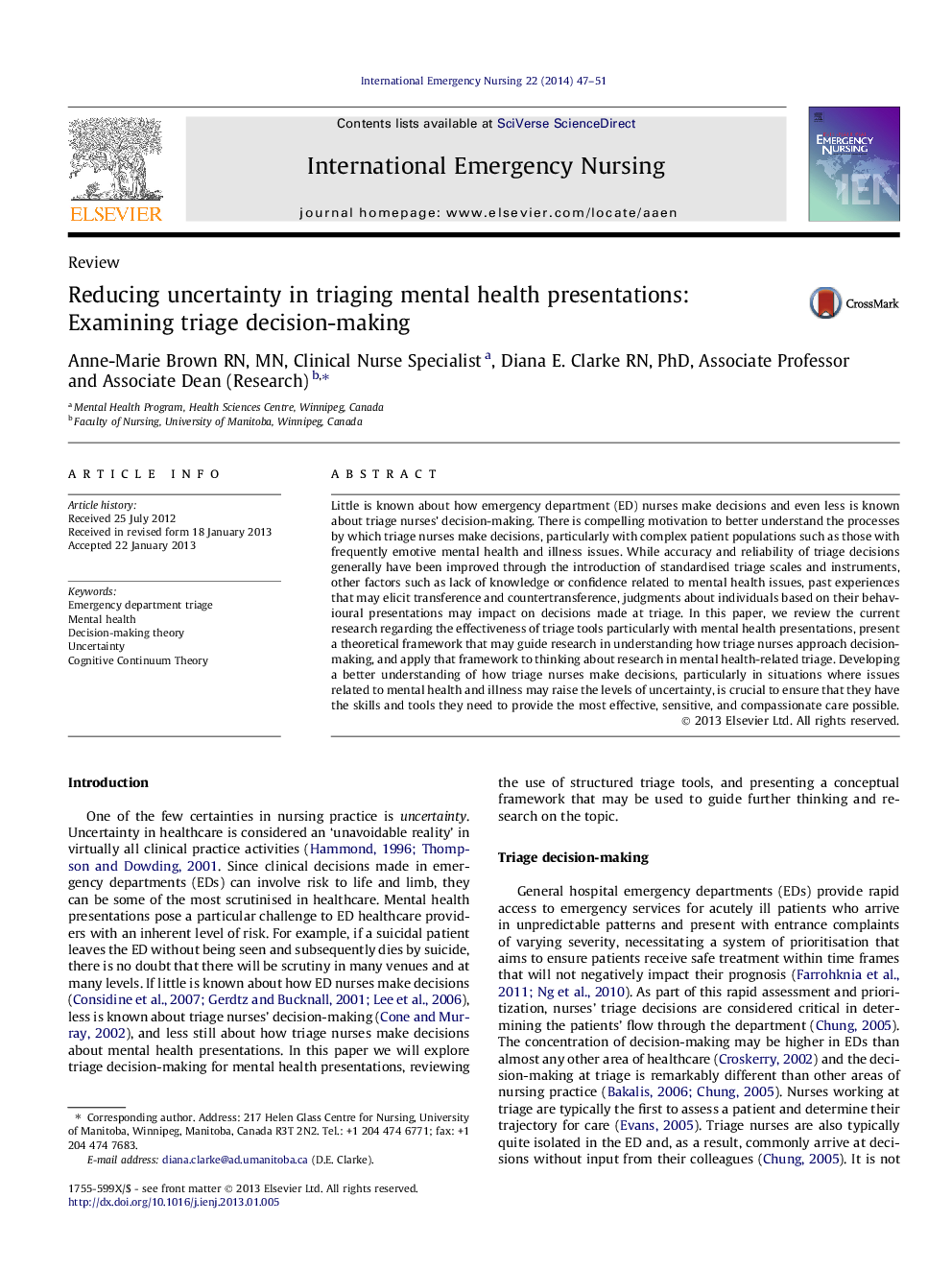| Article ID | Journal | Published Year | Pages | File Type |
|---|---|---|---|---|
| 2609580 | International Emergency Nursing | 2014 | 5 Pages |
Little is known about how emergency department (ED) nurses make decisions and even less is known about triage nurses’ decision-making. There is compelling motivation to better understand the processes by which triage nurses make decisions, particularly with complex patient populations such as those with frequently emotive mental health and illness issues. While accuracy and reliability of triage decisions generally have been improved through the introduction of standardised triage scales and instruments, other factors such as lack of knowledge or confidence related to mental health issues, past experiences that may elicit transference and countertransference, judgments about individuals based on their behavioural presentations may impact on decisions made at triage. In this paper, we review the current research regarding the effectiveness of triage tools particularly with mental health presentations, present a theoretical framework that may guide research in understanding how triage nurses approach decision-making, and apply that framework to thinking about research in mental health-related triage. Developing a better understanding of how triage nurses make decisions, particularly in situations where issues related to mental health and illness may raise the levels of uncertainty, is crucial to ensure that they have the skills and tools they need to provide the most effective, sensitive, and compassionate care possible.
